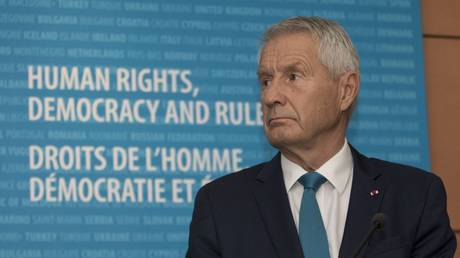
An Irish High Court judge has thrown out Facebook Ireland’s attempt to stop an investigation by the country’s Data Protection Commission (DPC), which had ordered the tech giant to stop sending data from its EU users to the US.
“For the reasons set out in this judgment, I refuse all of the reliefs sought by FBI (Facebook Ireland) and dismiss the claims made by it in the proceedings,” Justice David Barniville said in his 197-page ruling on Friday.
The judge said Facebook Ireland “has not established any basis” for impugning the DPC’s preliminary draft decision to suspend its data transfers to the US or move to start investigating the matter.
The DPC was not in breach of its “duty of candour” in how it defended itself in the case, as Facebook had claimed, although the regulator should have answered questions put to it by the company last year, the judge added.
He also said there was “no basis” for the DPC to make now-withdrawn allegations that Facebook’s case amounted to an “abuse of process and improper purpose,” adding that the allegation should have been withdrawn sooner.
In a statement following the ruling, Facebook vowed to defend its compliance with EU law, saying it had not broken data privacy rules and that it applies “appropriate data safeguards.”
A spokesperson for the social media site said the DPC’s “preliminary decision could be damaging not only to Facebook, but also to users and other businesses.”
The DPC has for years acted as the EU’s main watchdog as regards Facebook, owing to the tech firm basing its European headquarters in Dublin.
The Irish agency issued an order in August for Facebook not to transfer EU user data to the US following a ruling by the bloc’s top court, the Court of Justice of the European Union (CJEU), that Facebook’s protection of data transfers was not in line with EU standards.
The regulator welcomed the CJEU’s ruling, saying it highlighted that “EU citizens do not enjoy the level of protection demanded by EU law when their data is transferred to the United States.”
Facebook then asked for a judicial review of the DPC’s decision, which was rejected on Friday.
A separate action was also launched against the DPC’s inquiry by data and privacy campaigner Max Schrems, who feared the watchdog’s Facebook probe could interfere with his own complaints against the platform over its handling of his data.
Schrems has long raised concerns over how his personal information may have been intercepted by US intelligence agencies known to intercept data transferred to the US.
In a statement on Friday, the activist welcomed the saga nearing an apparent end, saying in a statement that the DPC could get its inquiry “out the door within a matter of two months, after almost eight years of procedures.”
Like this story? Share it with a friend!




